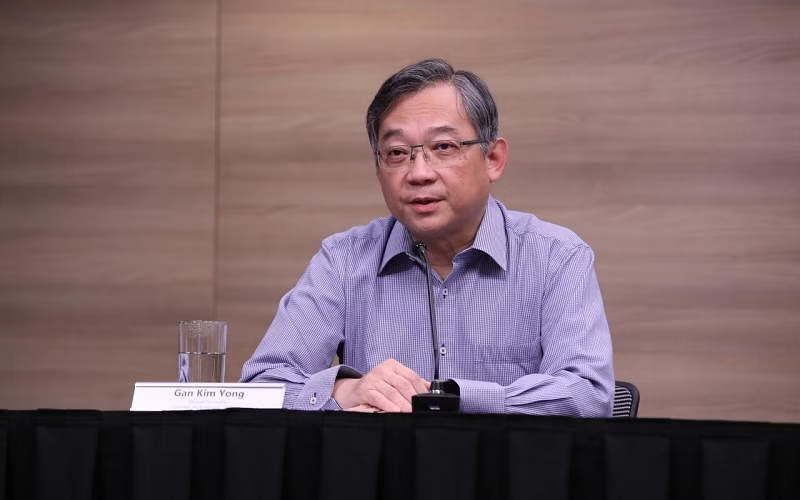Singapore passes major investment review bill on grounds of 'protecting national security'
Singapore has passed the Major Investment Review Act to review whether corporate acquisitions are in line with national security, and the government will publish a list of "designated entities" when the law comes into effect.。
On January 9, Singapore passed the Significant Investment Review Act (SIRA) to examine whether major investments would adversely affect national security, and the list of companies covered by it has not been disclosed.。
In the context of geopolitical tensions and other uncertainties, economic security is increasingly important for countries。Tighter scrutiny of foreign ownership of local companies may allow these companies to play an important role in the country's economic development and strengthen Singapore's economic resilience.。
Minister of Trade and Industry (MTI) Gan Kim Yong said SIRA was the latest investment management system incorporated for key national entities and Singapore was not the only country to do so.。
A 2023 UN report shows that since the 1990s, at least 37 countries have introduced regulatory frameworks to screen investments using national security as a factor.。Not only that, but countries such as China, the UK and the US have also recently tightened their investment management systems, and many more are planning to do so.。

Overview of the Major Investment Review Act
Currently, Singapore relies on industry-specific regulations (such as legislative restrictions on foreign ownership and a licensing system that requires investors to obtain approval from relevant regulators) to manage entities in regulated industries such as telecommunications, banking and utilities, and SIRA will complement its existing safeguards.。
Yan Jinyong said that SIRA applies to key entities that are not yet covered by the existing bill, and the factors that determine its "criticality" are whether the entity provides security-related functions and whether there are other alternatives.。
The list of "designated entities" will be published after the bill enters into force and will be removed from the list if it no longer meets the relevant criteria.。And since most key entities are already covered by existing regulations, the new bill is likely to apply to only a few.。MTI has sent a notification to the relevant entity。
In general, the Act contains the following important provisions:
1.The designated entity must notify the authorities or seek approval when ownership or control changes, and transactions without the necessary approval will be considered invalid, specifically:
- The buyer must rule within seven days of becoming controller of an entity%;
- seek approval before acquiring 12%, 25% or 50% of an entity's shares;
- The seller also needs to seek approval when it no longer holds 50% or 75% control。
2.Designated entities must also be approved when appointing key positions such as CEO and director positions。Without approval or in violation of approval conditions, these executives may be removed from office。
3.Designated entities shall not be voluntarily wound up or dissolved to ensure the safety and reliability of their functions。The government can step in if there are national security issues or disruptions to essential services。
4.The Government of Singapore may review transactions involving ownership or control by any entity (including unspecified entities) and even take targeted action in specific circumstances, including:
- the entity must have acted against Singapore's national security interests;
- Ownership and control transactions must have occurred within two years prior to the act endangering national security。

Different voices
On January 9, several lawmakers questioned the definition of "national security interests," while Yan Jinyong said that given that "various factors will change over time," clear specific definitions or specific examples will limit the speed of action and also expose Singapore's weaknesses.。Therefore, the government will maintain the flexibility of the definition。
However, he also revealed that "in this bill, national security will cover areas that are critical to Singapore's sovereignty and security, including economic security and the continued provision of basic services."。"
Separately, some lawmakers expressed dissatisfaction with the exercise of MTI's powers, pointing out that the current parliament, dominated by the People's Action Party (PAP) led by Yan Jinyong, supported it when it was unclear which economic sectors and companies might be affected, and that the bill gave MTI too broad legal powers.。
In addition, other parliamentarians expressed concern about the possible impact on foreign investment。They argue that the bill lacks a specific definition of national security and that lack of clarity in the risk assessment methodology will make investors hesitant, thus hampering economic growth.。SIRA transparency is therefore essential to quell investor concerns about unpredictability。
Not only that, but "too harsh" scrutiny can stifle the dynamism of economic activity, and a balance must be struck between national security and the impact on businesses.。
In his concluding remarks, Yan noted that the new provisions in the bill were "broadly similar" to those in the overseas investment regime (which most investors are already familiar with) and in line with international trade obligations.。"The government has no intention of directly interfering with the day-to-day business decisions and operations of the designated entity, and in exercising our powers we will always have the interests of our shareholders in mind."。MTI will prudently exercise its powers under the Act to establish procedures that are as clear as possible to minimize the overall impact on businesses and investors.。"
·Original
Disclaimer: The views in this article are from the original Creator and do not represent the views or position of Hawk Insight. The content of the article is for reference, communication and learning only, and does not constitute investment advice. If it involves copyright issues, please contact us for deletion.